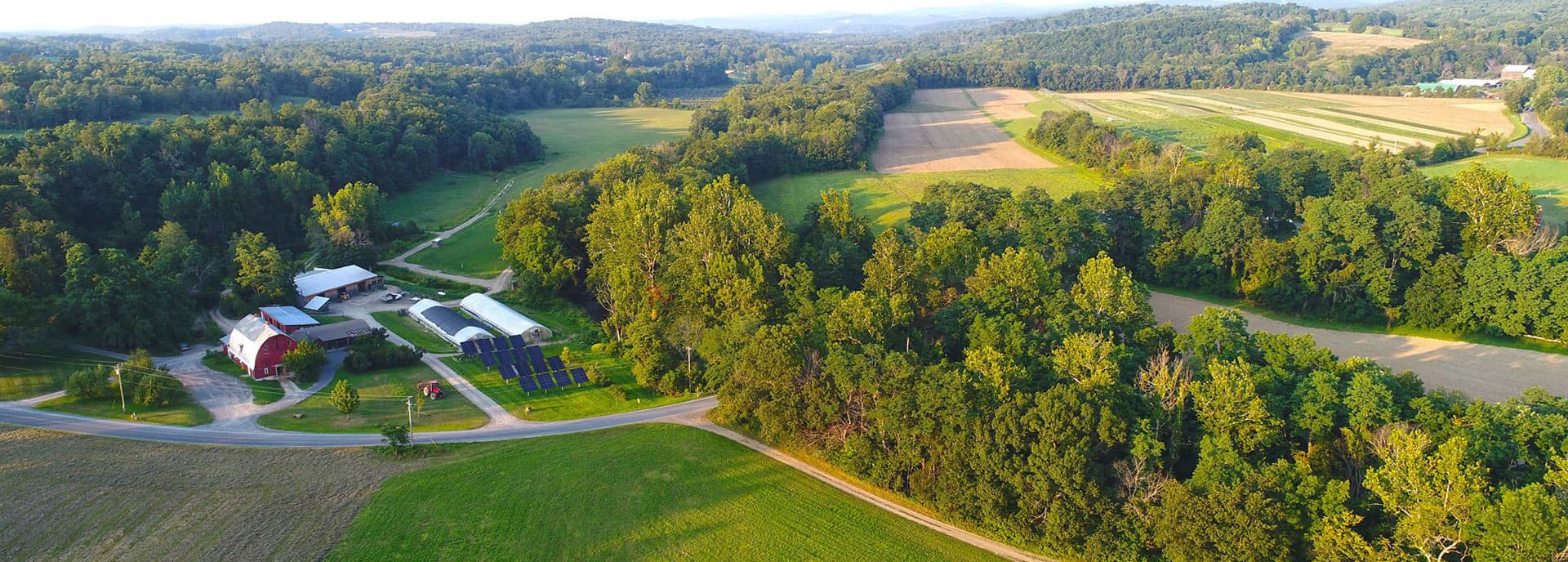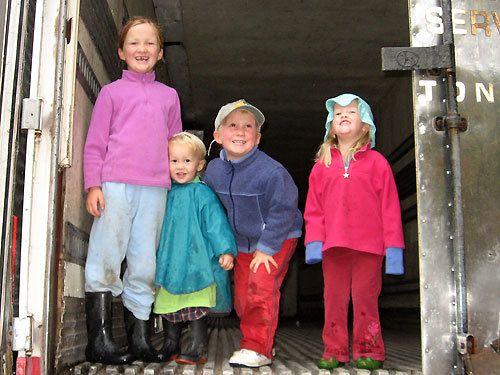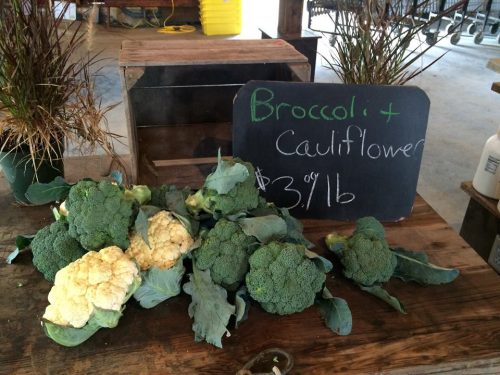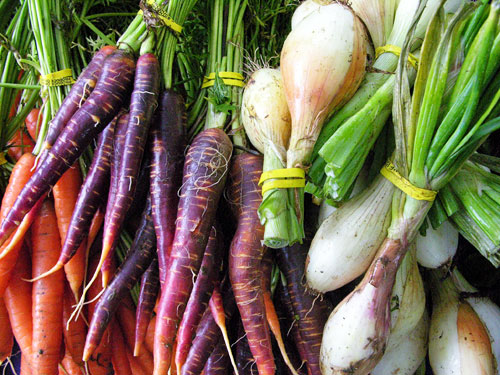THE FARM AT MILLER'S CROSSING
The Farm at Miller’s Crossing is a beautiful 200-acre farm situated in the Hudson Valley of New York. The Agawamuck Creek divides the farm providing water for the animals and plants that are raised there. The old Albany-Boston Rail bed remains on the northwestern end of the property, providing the name Miller’s Crossing, which was the stop and original address of this 200 year old farm.
We grow certified organic vegetables, plants and flowers; raise a small grass fed beef herd; and make maple syrup and maple products. The farm has 60 acres of vegetables within a 100-acre rotation, as well as 75 acres of pasture for our cows. Our greenhouse provides room to grow the farm’s transplants and bedding plants for sale. Our produce is marketed through member CSAs, the Hudson Farmers’ Market, and numerous wholesale accounts. Such diversified markets allow us to grow many different types of vegetables all season long.

A Family Operation
Though Chris and Katie run the business that does not mean that it is done without support of both of our families. Chris’ parents and 5 of his siblings live on the farm. The farm is about 200 acres and is protected by an easement from the Columbia Land Conservancy. Family members either live in homes already on the farm or are building within designated building zones. With such a large family around there is lots of help with deliveries and child care and general support in crunch times. Chris’ grandparents bought the farm in the 1950’s, which makes Chris and Katie’s four children the 4th generation on the farm. Chris & Katie are the 1st generation to make their living from farming.


History of the Business
The Farm at Miller’s Crossing is a family-owned and operated business. Since its beginning in 1994 the farm has grown and prospered. Katie started out in Chatham, New York as Kline Kill Organic Gardens. After five years of farming on rented land, the operation was busting at the seams of what could be done on only 4 acres. At this point Katie & Chris got married (after working together for a year to see if they were really compatible). It was right around this time that the farm that Chris grew up on in Claverack became available (Chris’ parents were not farmers) and so Kline Kill Gardens became The Farm at Miller’s Crossing and the business was moved to our present and permanent home.



Our Philosophy
Katie & Chris came to farming from very different angles. Chris grew up on this farm and has a passion for managing all aspects of it. He comes at it from a very grounded and practical perspective and is thorough and complete in his long-term vision of how he would like to see the fields, woods, pastures, and waterways managed for production, recreation, and general ecosystem health. He grew up working on farms in the Hudson Valley and then went on to college in Vermont and studied Political science and Philosophy. Katie came to farming from having done a college thesis on Amish agriculture looking at how their religious worldview shaped their farming and lifestyle. During college she traveled and worked on organic farms in New Zealand and then graduated and was a farm intern on a Hudson Valley Farm for two seasons. She did not become an intern thinking that she would become a farmer, but soon realized that the philosophical appeal of “right livelihood” was important, but the small business economics as well as the active lifestyle that farming affords keep her fully engaged and inspired.
Food is another aspect that keeps Chris and Katie farming. Here in the Hudson Valley we are so fortunate to be able to eat very well, very locally and very seasonally. This is important and rare, especially in the face of the trend in the world to make available all produce at all times in various processed and unprocessed forms.
Challenges
The biggest challenge in farming today it seems is fighting the global economy. Whether you operate a small market garden or a large corporate dairy, farmers are all competing in a very small world. California’s weather affects our pricing and makes us have to become more and more efficient every year. Customer’s price shop and only through educating people about the importance of local and fresh can we ever hope to combat the global market for food.

Marketing
Farmer’s markets are very important because of the community contact that it gives the farm. Over the years we have participated in many of the region’s markets. We now sell at the Hudson Market on Saturdays throughout the year. Being able to meet the people who are eating our produce and exchange recipes and ideas with them keeps us aware of what peoples real needs are whether convenience, quality, or new products.

Wholesale
We do a lot of wholesale business and we enjoy the volume that we do with that marketing. It allows our farm to be at a scale that helps us keep the entire farm in production and cover the overhead cost of the barns and buildings that have been here for so long. We have developed great relationships with the buyers of our various wholesale accounts and they too educate us as to their needs, which keep us constantly improving our business.

Community Supported Agriculture
Through our CSA we also are able to meet the individual consumer of our produce and we value their ideas and support. The CSA also gives us improved cash flow during a time of year when farmers typically do not have an income. Because members pay up front and are open to a wide array of seasonal produce, we are able to offer them a very affordable way to buy and eat organic produce.

